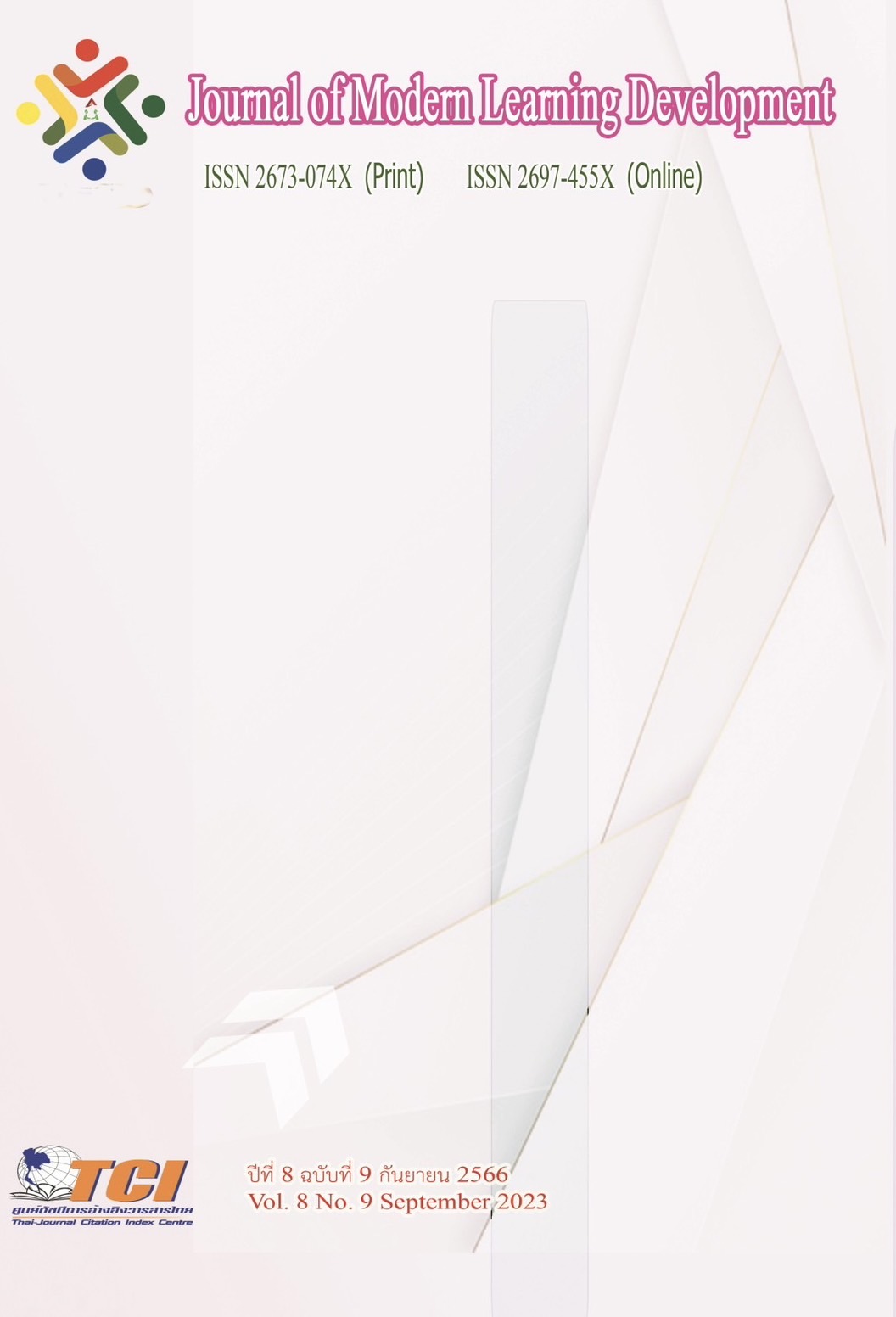Teaching Tremolo Technique in Pipa, Chinese Folk Music Instruments
Main Article Content
Abstract
The pipa is China's most distinctive and representative national instrument, which evolved from the "oud" of Persia (Iran) more than two thousand years ago. Then the Chinese pipa spread to other parts of East Asia, becoming the Japanese pipa, the Korean pipa, and the Vietnamese pipa. This illustrates that different cultures in different parts of the world have produced different instruments and music. Even when the same instrument has evolved over a long period, each has developed a completely different style and method of playing. The pipa has been legendary since it arrived in China, with poems describing the pipa by famous poets and writers from many dynasties over more than a thousand years, and there are stories about the pipa that have been passed down to this day. In ancient China, the pipa became an important instrument for accompanying dances, ensembles, and solos in the imperial palace. However, at that time, the pipa was not played with fingers directly touching the strings but with a plucked instrument until 650 years ago in the Ming Dynasty, when the development of the pipa underwent a historical change, and the method of playing was changed from the original plucked instrument to playing with fingers.
Article Details
References
Han, S. (2013). The transformation of the bent-head lute from plectrum playing to finger playing. Chinese Pipa History, (5), 132-135.
Lin, S. (2002). The tremolo of the Pipa. Journal of Instrumental Music, (11), 86.
Sun, L. (1999). Pipa tremolo and its Teaching Method. Journal of Fujian Normal University, (2), 145-147.
Wang, F. (1983). A few problems of pipa right hand training. Chinese Music, (4).
Yan, S. (1994). Musical Instrument Academy.
Zhuang, Y. (2018). The basic method of tremolo. Chinese Pipa History Class, (6), 93-97.


